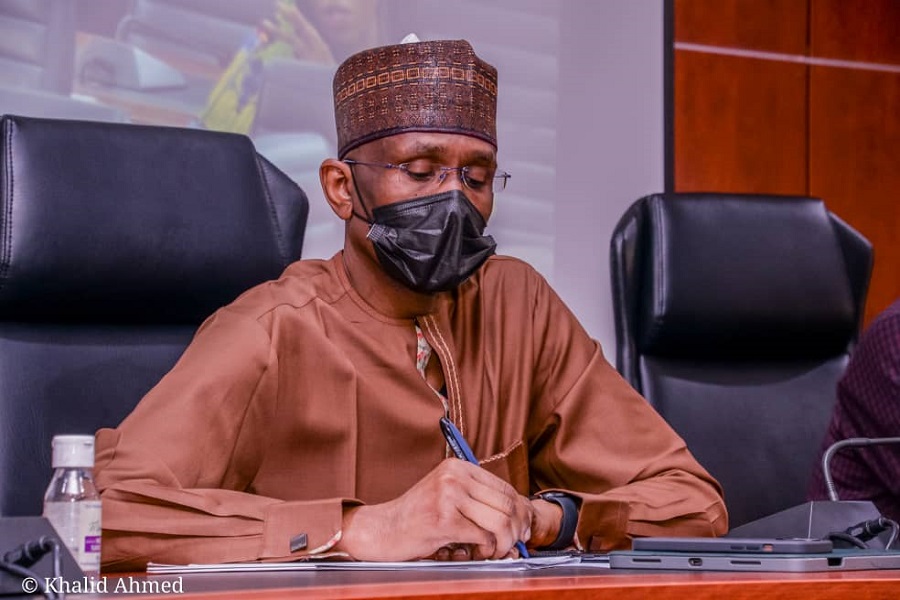The Federal Government has said that it has captured about 30 million Nigerians in the National Social Register that would facilitate the achievement of their goal of lifting 100 million people out of poverty in the next 10 years.
This is as the Federal Government has also revealed how the National Social Register was developed.
According to a report from the News Agency of Nigeria (NAN), this disclosure was made by the Permanent Secretary, Federal Ministry of Humanitarian Affairs, Disaster Management and Social Development, Alhaji Bashir Alkali, at the National Social Safety Nets Project (NASSP) engagement meeting with State Permanent Secretaries on Thursday in Abuja.
READ: Conditional cash transfer: FG gives reason for disengagement of 2 service providers
What the Permanent Secretary of the Ministry is saying
Alkali said NASSP was designed to have structures from the federal to the states, down to the local government levels, reflecting the three tiers of government.
He said, “Currently, the NSR has 30 million Nigerians from 36 states and the Federal Capital Territory from seven million poor and vulnerable households. A further break down shows these households have been identified so far in 699 local government areas, 8,161 wards and 81, 776 communities across the country.
“The NSR is developed using the geographical and community-based targeting (CBT) Mechanism, using community members, anchored by the State Operation Coordinating Unit (SOCU) in each of the states. The National Cash Transfer Office (NCTO), has currently enrolled 1, 632,535 benefiting poor and vulnerable households in 45, 744 communities from 5, 483 Wards of 557 Local government areas in 35 states and FCT,” Alkali said.
READ: FG moves to construct 300,000 housing units for low-income earners
He explained that this translates to 8, 100,682 individuals in the benefiting households through a representative of the household called ‘Caregiver or Alternate Caregiver’ which is paid bi-monthly (N10, 000), adding that currently, 991,965 households were receiving payment in 28 states and the FCT.
He maintained that all these were to actualise the vision of President Muhammadu Buhari to pull 100 million Nigerians out of extreme poverty.
He said, “Thus, there is a need to harmonised the structures and operation of SOCU. It is very important”.
On his part, the National Coordinator of NASSCO, Mr Apera Iorwa, said the state permanent secretaries are oversight officers of the programme in the state.
READ: How N343.95 million got missing in Water Ministry
He said, “There is a need for us to meet regularly and analyses issues, modalities and chart a way forward for the programme.’’
While urging the permanent secretaries to be up and doing to avoid diverting the objectives of the programme in the state, Iorwa added that states were liable to refund monies to the World Bank because accounts would be audited and if the funds are misused, they would be refunded.
The Federal Government of Nigeria established the National Social Investments Programmes (NSIP) in 2016, to tackle poverty and hunger across the country.
READ: SERAP sues Buhari over FG’s plan to borrow N895bn from dormant accounts, unclaimed dividends
The suite of programmes under the NSIP focuses on ensuring a more equitable distribution of resources to vulnerable populations, including children, youth and women.
Some of the initiatives under this programme include;
- The N-power programme, which is designed to assist young Nigerians between the ages of 18 to 35 to acquire and develop life-long skills for becoming change-makers in their communities and players in the domestic and global markets and given a stipend of N30,000 monthly.
- The Conditional Cash Transfer (CCT) programme, which directly supports those within the lowest poverty bracket by improving nutrition, increasing household consumption and supporting the development of human capital through cash benefits to various categories of the poor and vulnerable.
- Government Enterprise and Empowerment Programme (GEEP), which is a micro-lending intervention that targets traders, artisans, enterprising youth, farmers and women in particular, by providing loans between 10,000 and 100,000 at no monthly cost to beneficiaries.
- The Home Grown School Feeding Programme (HGSF), which aims to deliver school feeding to young children with a specific focus on increasing school enrollment, reducing the incidence of malnutrition (especially among the poor and those ordinarily unable to eat a meal-a-day), empowering community women as cooks and by supporting small farmers that help stimulate economic growth.
